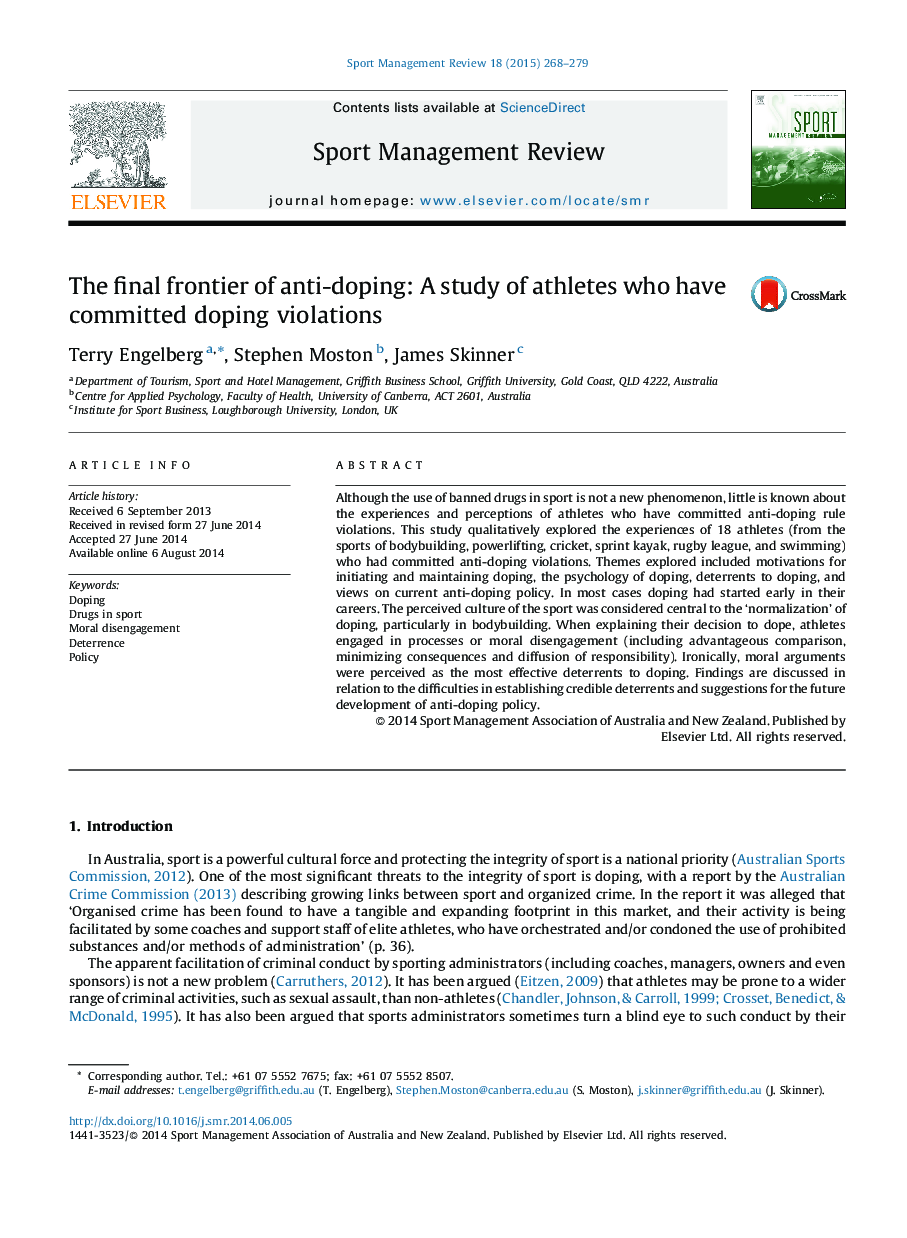| Article ID | Journal | Published Year | Pages | File Type |
|---|---|---|---|---|
| 140866 | Sport Management Review | 2015 | 12 Pages |
•18 doping athletes were interviewed.•Processes of moral disengagement are used to facilitate doping.•Doping is ‘normalized’ in some sports.•Existing deterrents to doping are not perceived as credible.
Although the use of banned drugs in sport is not a new phenomenon, little is known about the experiences and perceptions of athletes who have committed anti-doping rule violations. This study qualitatively explored the experiences of 18 athletes (from the sports of bodybuilding, powerlifting, cricket, sprint kayak, rugby league, and swimming) who had committed anti-doping violations. Themes explored included motivations for initiating and maintaining doping, the psychology of doping, deterrents to doping, and views on current anti-doping policy. In most cases doping had started early in their careers. The perceived culture of the sport was considered central to the ‘normalization’ of doping, particularly in bodybuilding. When explaining their decision to dope, athletes engaged in processes or moral disengagement (including advantageous comparison, minimizing consequences and diffusion of responsibility). Ironically, moral arguments were perceived as the most effective deterrents to doping. Findings are discussed in relation to the difficulties in establishing credible deterrents and suggestions for the future development of anti-doping policy.
